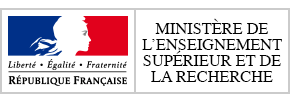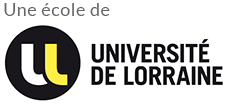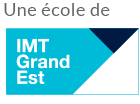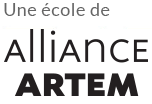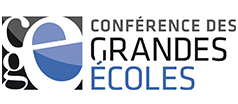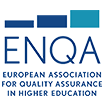Change Now, in partnership with Les Echos, has just released the fourth edition of its ranking of engineering schools most committed to social and ecological transition. After placing fifth in 2022 and third in 2023, Mines Nancy has climbed to the top spot this year!
“This recognition highlights the years of commitment and hard work our school has put in,” said François Rousseau, the Director of Mines Nancy, as he commented on the school’s first-place standing in the 2024 Change Now x Les Echos Start rankings, published on Thursday, November 7. This recognition affirms Mines Nancy’s role as one of the leading engineering schools driving France’s social and ecological transition.
The ranking, now widely acknowledged, aims to spotlight the schools actively integrating environmental and social principles into their curriculum, research, and operations. “For years, we have been deeply committed to addressing ecological, energy, digital, and societal challenges in all our programs. This commitment is also reflected in everyday campus life and our partnerships, both locally and within the professional world.” François Rousseau noted. This mission permeates not only the curriculum but also daily campus life and the school’s partnerships with local and professional networks. Within its curriculum, Mines Nancy offers over 800 hours of elective courses related to sustainable development across a 2,000-hour program, with 47 dedicated modules and a customizable study path for students.
Two Special Task Forces Dedicated to Driving Key Transitions
“This top-ranking position is not an endpoint but a true motivator for us to strengthen our dedication to these current challenges and, ideally, maintain our position in future editions,” said François Rousseau. To accomplish this, Mines Nancy relies on two dedicated initiatives: the Socio-Ecological Transformation (TSE) and the Equality, Diversity, and Inclusion (EDI) cells. Comprised of faculty, administrative staff, students, and alumni, these groups analyze current conditions, monitor strategic developments, and establish plans for social and ecological transition. They also play a vital role in implementing concrete actions—from carbon audits and promoting eco-friendly commuting to fostering accessibility and combatting harassment—addressing awareness, training, and campus life as a whole.
In the 2024 Change Now x Les Echos rankings, Mines Nancy stands out with its distinctive projects that strengthen the link between research, innovation, and education, both in France and internationally. Every year, Mines Nancy hosts an international conference, “Academia Stands for Green Deal,” which gathers dozens of academics from across the globe to promote knowledge-sharing and best practices aligned with the European Green Deal, fostering collaborations, particularly at the European level. As part of this commitment, Mines Nancy also organizes the “GreenTech Student Challenge,” a competition recognizing innovative ideas developed by students and young researchers.
The launch of a new Erasmus Mundus Joint Master, “GREENANO,” co-organized by Mines Nancy and the Faculty of Science and Engineering at the University of Lorraine, and partner institutions in Italy and Slovenia, further reinforces this forward-thinking vision. The inaugural cohort of 25 students from 17 countries began their studies in September 2024. “Greenano is driven by the vision of the European Green Deal,” explained Alexandre Nomine, director of the Joint Erasmus Mundus Master’s program and faculty member at Mines Nancy. “Our mission is to prepare a new generation of ‘innovators’ skilled in nanotechnology for green and digital transitions. We emphasize sustainability, advanced materials science, and practical skills, all while adhering to rigorous environmental standards.”
Locally, Mines Nancy is committed to the community by hosting numerous events and partnering with Shifters Nancy Lorraine, a local branch of The Shifters, an organization launched in 2014 to support the Shift Project think tank. This collaboration promotes climate awareness among students, educators, and the public, building on successful initiatives established since 2021.


